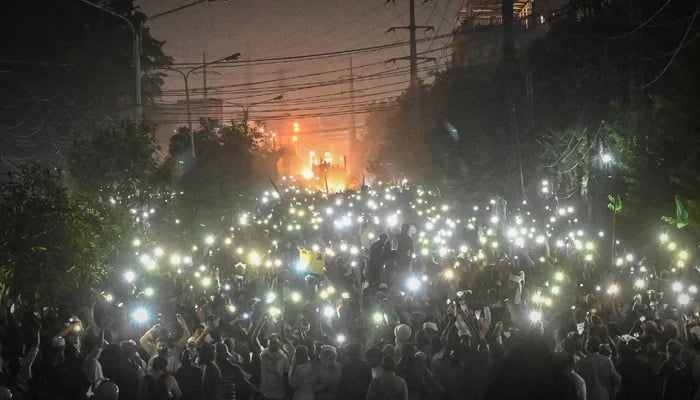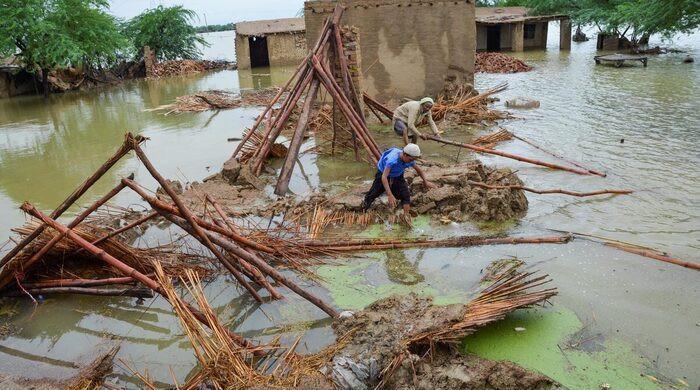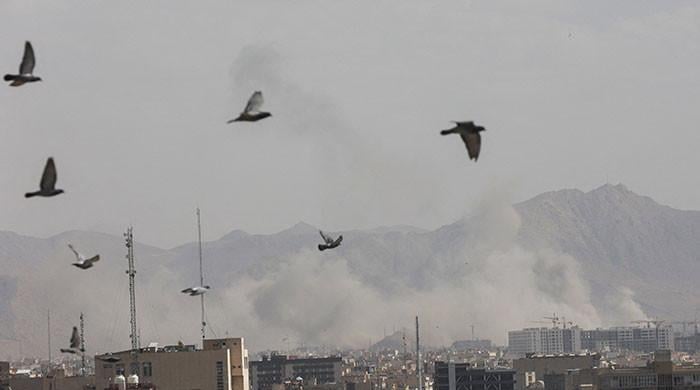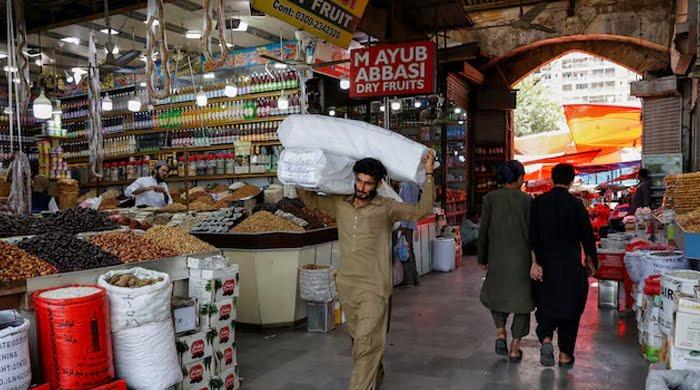TLP protests: The path forward
The time has come to determine which kind of Pakistan we want
November 05, 2021

The agreement with the TLP is causing ripples through the societal divide. One lives in dread of its fallout in shaping the future national narrative and its international repercussions which could have grave impact on how things work out for Pakistan.
What were the compulsions which led to a yet-to-be-disclosed agreement with the proscribed organisation when the statements emanating from governmental echelons indicated that the writ of the state would not be compromised? This is neither the first time that any government has caved in, nor is this the only government which has done so.
It was the sixth time the militant organisation had taken to the streets to press for the acceptance of their demands including termination of diplomatic relations with France and expulsion of its ambassador from the country. Each time, they had successfully managed to block the twin cities of Islamabad and Rawalpindi, causing incalculable sufferings to the people and exposing the inability of the government of the time to combat the threat.
The contours of the agreement which have surfaced include the militant organisation having withdrawn its earlier demand of severance of diplomatic relations with France. They are also understood to have renounced street agitation as a means of promoting their political relevance. In return, it is believed that the TLP will be allowed to operate as a political party and take part in the elections.
We all know that Pakistan is a victim of much that has been done in the past as a means to actively promote the cause of religiosity. Many laws were enacted on account of which Pakistan has suffered a bruised face. The emergence of these militant organisations has been a result of these laws which provided ample space to them to promote vile politics of indoctrination and hate which inevitably border on militancy.
The critical question is not whether we should continue giving space to these organisations to promote their myopic and regressive agendas, but whether the country can sustain these laws which facilitate and legitimise these organisations and their draconian operations.
The Islam that is contained in the Holy Quran and that we have learnt from the life of the Holy Prophet (PBUH), which Prime Minister Imran Khan is passionately dedicated to promoting, is not the religion manipulated by these militant organisations and their operators. Their brand of violence and hate is their own coinage, their own fabrication which has nothing to do with the religion of the holy book.
By allowing these hate-mongers to promote a religion which is a denial of the ingrained values and precepts of real Islam, we are all rendered guilty. Instead of inculcating care and compassion, this is gravely impacting societal values and norms, thus plunging people into pits of depravity and violence. They have been brutalised – a culture which they are passing on to incriminate other people, thus raking up further divisions and hatreds among communities.
The philosophy of continuing to grant space to these organisations has neither served the purpose of Islam, nor the interest of the country. Instead, it has inflicted grievous damage upon the inherent interests of religion and the state both. While incorrect versions of religion are vastly in vogue and practised, the state has been finding it increasingly difficult to cope with the challenges of making remedial laws as well as their implementation. This has inevitably led to creating internal divisions and exposing Pakistan to increasing censure worldwide.
An even more grievous aberration is the use of religion in politics. The organisations which should be principally devoted to promoting an enlightened interpretation of Islam have instead taken to exploiting it to perpetuate their political interests and relevance. This is entering an extremely dangerous territory which has split people apart with increasing mutual intensity and violence.
Time really has come to determine which kind of Pakistan we want to take into the future. There was a Pakistan that the Quaid outlined on August 11 from the floor of the first constituent assembly, which was a liberal, enlightened and tolerant country where people would have lived in harmony among themselves. The country that has emerged with the passage of time does not reflect the values enunciated by the Quaid. This is a different country, almost at a tangent with the one that it was envisioned to have become.
Of course, there are multiple historical reasons why we have transited to this extreme. Instead of lamenting the circumstances of the past, we have to grapple with those attenuating factors. We cannot let Pakistan slide into becoming a hostage in the hands of unenlightened and regressive forces which will only drag it back to the days of the cave.
We stand at the crossroads. Looking back, we catch a glimpse of the promise that Pakistan exuded at the time of its birth and through the nascent years of its freedom. But, looking forward, we see a Pakistan that is the very antithesis of those laudatory values which were ingrained into its foundations and which we have uprooted gradually, replacing them with a culture of intolerance and impunity. This is the weight that we carry as it drags us backward. We have to unshackle the country and its people from this unwieldy behemoth and give it the impetus that it could move into the future to fulfil the promise of its creation.
There is much that needs to be done to realise this dream. The foremost step would be to secure the country from the grip of regressive forces which are wont to brandishing their merchandise in a violent manner. They are not Pakistan’s future. The concept of welfare should be the focus of the future, not creating a religiosity-driven state that will expose Pakistan to international censure in an extremely polarised environment.
I fully understand the government’s eagerness to avoid bloodshed in the country. But an excessively militarised approach which invokes acts of extreme violence has to be defanged. If a policy of mutual accommodation is pursued, that would only hurt the state. This will also spur other TLP-like organisations to employ equally condemnable methods to extricate favours of the government.
Prime Minister Imran Khan is consistently focused on creating a welfare state which is devoted to uplifting the poor; state resources should be employed for their welfare as a matter of priority. Only this strategy would be in consonance with the spirit and values of religion that we were taught, not a culture of violence and bigotry that, unfortunately, we have unwittingly come to espouse. We must remember that the path we choose today will shape our tomorrow.
The writer is the special assistant to PM on information, a political and security strategist, and the founder of the Regional Peace Institute. He tweets @RaoofHasan
Originally published in The News











